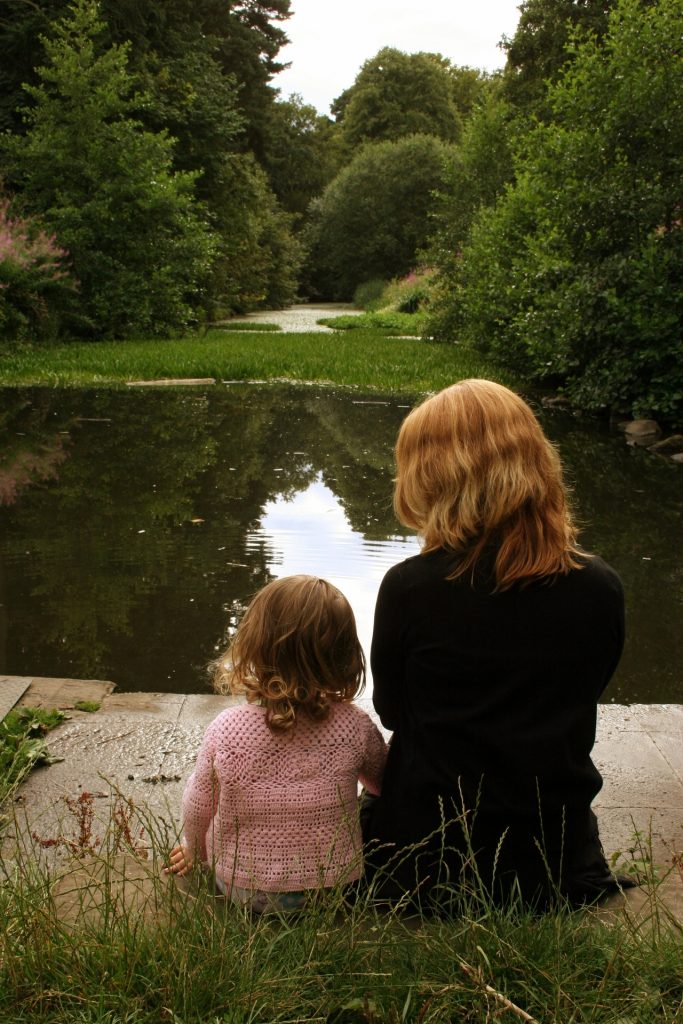I've been fortunate enough to be able to stay at home full time with both of my pre-school age children, and while I'm not quite ready to make the leap back to work, I recognise that what I do day to day doesn't stand in isolation, and that I will be able to transfer the experiences I have developed in my job as a parent to my role in the classroom, and enhance my skills and expertise along the way. It has taken time to believe in myself, and to appreciate that being a stay at home mum has added to, rather than detracted from, my portfolio of skills. When you're not a member of the workforce for any reason, it's easy to forget your professional capabilities, and not see them in yourself. I decided to sit down and write a list of some of the skills I use every day that would prove useful in a classroom environment, and share them with you.
 1. Facilitation
1. Facilitation
My children have many and varied interests…from space to sticker books to singing. They love to make, create and imagine. And one of my most important roles is to help them do that. I encourage their passions, and help ignite their enthusiasms and bring them to life. Tell me if I'm wrong, but I'm fairly confident this is something I'd be able to utilise in the classroom!
2. Problem solving
In our house, we spend a lot of time talking about being “problem solvers”. I encourage my three year old to look for solutions and try to think of creative ways of arriving at them. It enables her to think for herself and to value her own contribution. I hope this will help her to develop a growth mindset, and allow her to see herself as a resilient learner. This is also something that we want for the children we teach.
3. Teamwork
My husband and I believe parenting is something we do as a team. We each have equal responsibility for our children, and we each have equal input into how we choose to raise them. And we believe it is healthy for our children to be involved in our family decisions. Teamwork means sharing responsibility, creating a dynamic where everyone is valued and where all contributions are recognised. It's just as important to the family as in the work environment.
4. Organisation
Mums have to be organised. Getting from A to B on a wing and a prayer is not only difficult with two young children to cater for, it's also absolute chaos! Being ready to go out first thing in the morning, and being prepared to spend the whole day outside, plan for changes in the weather, anticipating hunger and thirst, and even toileting accidents, are all part and parcel of the job. Keeping my children as engaged and entertained as possible, and looking after their belongings, are all valuable attributes in the class teacher.
5. Prioritising
Making things happen when you need them to happen. Knowing what the most important thing on the never ending to do list of motherhood is, and ensuring it gets done. The small things that oil the wheels of family life, and keep it running smoothly. Something every good teacher needs to be able to do effectively.
6. Communication
Communication is a two way process. Learning to listen as a parent is just as important as what we say. In our house, we encourage our children to engage with us, and hope they see themselves as having an active role within our family dynamic. We want them to feel valued and invested, and I hope that this is something that would translate well to the teaching world.
7. Compromise
As parents, we all soon learn that our children may not have exactly the same idea for the outcome to any given situation that we do. We learn to be flexible with our approach, and we develop any number of ways of saying the same thing. We try one thing, and if that doesn't work, we try something else. Sound familiar? It should.
8. Discipline
My job as a parent is to give my children the tools to help them to grow into successful and capable adults. They don't need me to do things for them. They need me to teach them to do things for themselves. They need someone they can trust to help them to develop their own moral compass. This is something that has direct correlation in the classroom. Students need teachers who believe in them, and are committed to helping them to become self motivated learners.
There you go. Eight skills I have honed outside the classroom. What are yours? Let us know below!
By Resident Writer Jenny Smith
Where next? There's a great quick read here on active supply teacher professional development.
Check out our resources area here too.